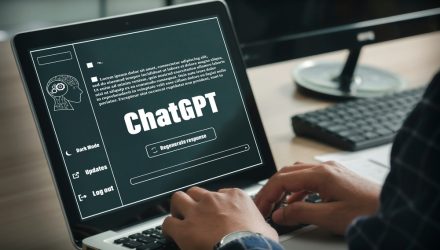By: Bill Studebaker, CIO at ROBO Global
ChatGPT may be the fastest-growing consumer internet application in history. Its unprecedented popularity can be attributed to its impressive capabilities of generating original content based on user-inputted prompts. Bill Gates, the man responsible for igniting the home computer revolution, believes ChatGPT will “change the world.” He claims that AI will be just as foundational to society as the PC and the internet.
The use cases for ChatGPT are endless, allowing us to utilize the technology to complete our most mundane tasks. One key area that it has the potential to disrupt and optimize for the better is the healthcare industry. With all of the dated systems, patient inefficiencies, and staffing shortages, the medical space is long overdue for a revamp. And fortunately, technology is coming to save the day.
HOW CHATGPT CAN HELP IMPROVE HEALTHCARE OUTCOMES
Improving access to care
ChatGPT can provide patients with information and guidance on their health issues. This can help to improve access to care, particularly for patients who may face barriers to care such as distance, mobility issues, or language barriers.
Increasing efficiency
ChatGPT can help to speed up the diagnostic process, allowing healthcare providers to identify patients’ health issues and provide appropriate treatment. This can help to reduce health disparities and improve health outcomes quickly and accurately.
Personalization of care
ChatGPT can provide tailored health information and guidance to patients. This may help to improve the effectiveness of care and reduce disparities in health outcomes.
OPPORTUNITIES IN HEALTHCARE
Clearly, the opportunities for using ChatGPT in healthcare are abundant. These are some of the specific areas we may start seeing generative AI introduced to the industry in the coming years:
- Virtual assistants for patient care: ChatGPT could be used to create virtual assistants that can help patients schedule appointments, answer medical questions, and provide information on symptoms and treatments. And it could automate the process of creating clinical documentation, such as medical charts and progress notes.
- Medical research: ChatGPT could be used to analyze large volumes of medical data and assist in the discovery of new treatments and cures.
- Patient engagement: ChatGPT could be used to create chatbot-based applications for patient engagement, providing patients with real-time feedback and support for self-management of their care.
POSSIBLE CONCERNS OVER THE USE OF CHATGPT IN HEALTHCARE
It’s understandable that some doctors may have concerns about the use of ChatGPT in healthcare. It represents a significant change to the way medical care is traditionally delivered. While the benefits are vast, the use of the AI app in the healthcare industry has also sparked concerns. The first is the potential for misinformation and inaccuracies in the information provided by the model. In healthcare, where accuracy is crucial, relying solely on AI-generated responses without proper verification could lead to harmful outcomes for patients. This is where fact-checkers and keeping the human element is critical.
Another concern is the issue of privacy and security. Healthcare data is highly sensitive and protected by strict regulations. Sharing patient information with an AI model raises questions about data confidentiality and the potential for breaches or misuse. Additionally, there is a lack of accountability and liability when it comes to AI systems.
And while ChatGPT and similar AI models have great potential in healthcare, addressing these concerns and developing robust frameworks to ensure accuracy, privacy, and accountability before widespread adoption is essential.
INNOVATION AND INVESTMENT IN HEALTHCARE DOESN’T STOP AT CHATGPT
Innovation is occurring across the entire healthcare space ranging from the technical applications of surgical robotics, regenerative medicine, gene sequencing, and beyond to the administrative tasks like scheduling, data analysis, and patient communication. For investors looking to capture the growth happening in healthcare today, the HTEC index is a comprehensive way to play the future of healthcare as technologies like ChatGPT continue to change our healthcare experience.
For more news, information, and analysis, visit the Disruptive Technology Channel.

